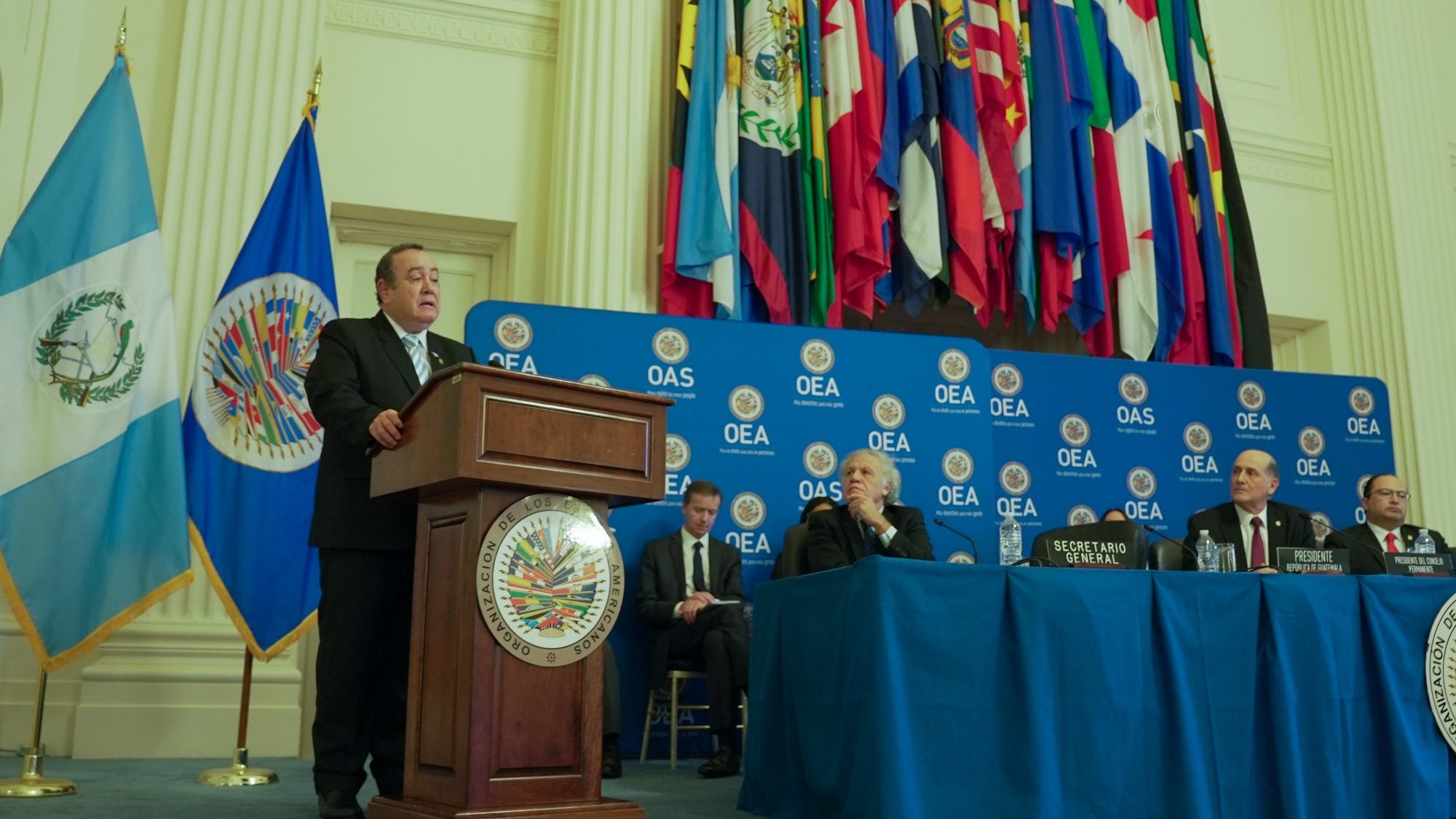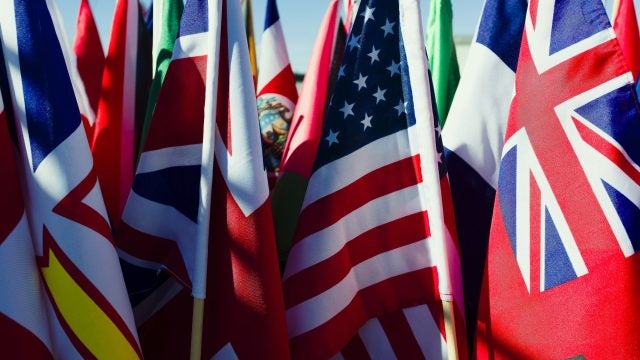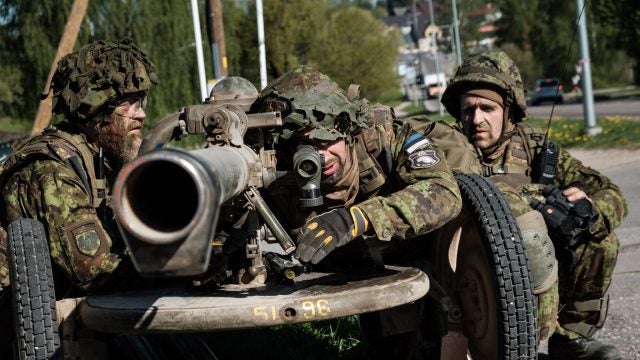
Title: Inflection Points: Pax Americana at a Crossroad
For many in the Global South, the ‘American Peace’ or Pax Americana is a mirage amid a world of war, economic hardship, forced migration, environmental calamity, and political repression while lacking local and global representation. Outside of the Euro-Atlantic space, the ‘American Peace’ represents an oxymoron. To gain legitimacy as a global leader in the twenty-first century, the United States must lead the reform of the post-World War II global institutions to initiate greater representation for the Global South.
Introduction
In 1945, at the end of World War II, much of the Global South was occupied by European empires. As the determination of self-rule gained traction within these empires, the colonial powers brutally challenged the resistance against their empires by establishing Pax Americana or peace through militarism. However, critics argue that Pax Americana has been Janus-faced, meting out favorable conditions restricted to the Euro-Atlantic region. In the sovereign nation-states that emerged from colonial grip, there is less tolerance for racial and ethnoreligious hierarchies. Today’s youth are far more engaged with unifying themes than their forebears. As we enter the mid-twenty-first century, global institutions of governance and economics must adjust to adequately reflect these realities.
The post-WWII architecture faces challenges from new economic, military, and political groups like the intergovernmental organization, BRICS. A mosaic of actors linked by race and ethnicity, social (under) class, gender politics, religious affiliations, values, belief systems, historical experiences, narratives, age, and larger supranational spatial units all vie to tilt the global system in new directions. These new groupings are partly based on a shared unease with the status quo.
China’s Belt and Road Initiative proposes economic cooperation with mostly developing nation-states. Russia and its proxy Wagner Group have a growing influence on political, economic, and military activities in some African states. The New Development Bank has emerged and aims to marshal resources primarily for the Global South. All provide an alternative to US-led initiatives. If a semblance of Pax Americana is to survive, the United States must undertake broad adjustments to accommodate and respond to alternative interests.
A complex, dynamic, and turbulent world
The Biden administration’s simplistic framing of a world bifurcated into democracies and autocracies, rule-based disciples and outlaws, and good and evil does not resonate with today’s international audience. It risks being interpreted as an attempt by a desperate hegemon to maintain its position in a rapidly shifting world. As the United States clings to the concept of extreme poles, countries like China and India among others are increasingly turning towards a multipolar framework. Contrary to what scholars predicted, China did not evolve into a Jacksonian democratic fortress over the course of its economic growth. India, the self-proclaimed world’s largest democracy, continues to seek alternative paths within a multipolar framework.
Indeed, Global South actors are embracing multipolarity and resisting a unipolar Euro-Atlantic system. China and Russia continue to garner broader support from Global South governments, which now envisage new forms of development that are less defined by the adoption of Western liberal practices. Their relations with China and Russia may be opportunistic, but they exhibit a shared antagonism against deeply distrusted Western frameworks and inadequate representation in US-led global institutions. As former Senegalese President Abdoulaye Wade noted, “With direct aid, credit lines and reasonable contracts, China has helped African nations build infrastructure projects in record time. These are improvements, moreover, that stay in Africa and raise the standards of living for millions of Africans, not just the elite few.” Wade’s statement echoes the perception that post-colonial relationships between the American-led West and Africa were mainly exploitative. These contrasting narratives and global shifts suggest that the ‘American Peace’ would benefit from readjustments.
Hypocrisies at home
The concept of ‘American Peace’ must reflect respect for a diverse set of domestic interests and communities before it proliferates across borders. However, the policies and rhetoric of US leaders fail to instill confidence in America’s tolerance for diversity represented by the Global South. Former US President Donald Trump promises that, if elected for a second term, he will implement his previous ban on Muslims entering the United States. In 2015 and 2020, Trump campaigned on the rhetoric that Central and South American migrants were the Americans’ enemies, criminals, rapists, and drug dealers. The Trump administration locked migrant children in cages on American soil, many of whom were fleeing from violence and socioeconomic instability. He has made denigratory remarks about the peoples of Haiti and Africa and about Black Americans in the United States. He has also stoked anti-Asian hatred with references to the coronavirus as the “Chinese virus.”
In the United States, minority groups also continue to lag behind their white counterparts on most indicators of well-being, including educational attainment, employment, housing, and access to healthcare. Carceral violence against minority groups in America has been broadcast on television screens for global consumption. The brutal suffocation of George Floyd by a white police officer laid bare the plight of Black people in the United States. His death was mourned by people around the world and contributed to growing solidarity among marginalized groups. For instance, murals of George Floyd are displayed in public spaces in Gaza, a Palestinian territory. Observers in the Global South read these frequent flare-ups of violence against minority groups as deliberate acts of subjugation to maintain a Western ethno-racial social hierarchy.
On an international level, the Global South voices lack representation in institutions endorsed by the United States. The United Nations Security Council, for example, is constituted to exclude these actors, except for China. The world’s most populous nation, India, and countries from the second most populous continent, Africa, do not have permanent seats on the Council. Meanwhile the United Kingdom and France, with fractions of India and Africa’s populations, have permanent seats. This constitution allows Western powers to lead global agenda-setting.
Similar inequities in representation are evident within the weighted voting systems of global financial institutions, such as the World Bank and the International Monetary Fund (IMF). Currently, voting rights in the World Bank and IMF are partially determined by the share of capital a nation holds within these institutions. As such, non-Western and smaller member states are unable to form coalitions to offset the power of Western states, rendering the voting power of smaller states outside of the Euro-Atlantic space insignificant. This ensures continuous hierarchical international governance. Hence, those in the periphery of global power possess little power to initiate processes that they deem important and little power to block processes that do not represent their interests. They are primarily takers of decisions made in Euro-Atlantic capitals.
Policy recommendations: From Pax Americana to Pax Universalis
To lead the transformation from ‘Pax Americana’ to a more inclusive world order—‘Pax Universalis’—the United States must consider the interests of the Global South as it considers those of the Euro-Atlantic space. With the Chinese promise of limited restrictions on developmental aid, and the Russian assurance of security protection in a multipolar world, less powerful countries are increasingly attracted due to their economic and security interests. They would rather work with China and Russia instead of playing a minor role in international institutions functionally limited by unilateral, and not universal decision-making.
Firstly, the United States must act to improve the economic conditions of those at the margins. As the largest financial contributor to the World Bank and IMF, the United States has the most voting power, giving it the sole veto right for a major proposal. This weighted voting system is neither just nor democratic. The United States must demonstrate leadership by initiating reapportionment of votes in these institutions to account for the level of economic development. Financial contributions from least developed countries must have a greater weight.
The United States and its allies must also fully incorporate Global South countries into other shared global governance mechanisms. A US-led reform of the global order should include increasing the composition of the UN Security Council from five permanent members to nine to include Brazil, India, Nigeria, and South Africa. This composition is more representative of global population sizes, as India and Brazil are among the world’s most populous nations, and Africa represents more than one-quarter of member states of the United Nations. A fully constituted UN Security Council that makes decisions to foster global peace and security should be central to twenty-first-century global governance.
Further, the United States should lead the creation of a G40 representing the world’s 40 largest countries in place of the anachronistic G7, which is no longer relevant for a more inclusive world order. Momentum already exists: in September 2023, the African Union became a permanent member of the G20. More than half of the nation-states existing today did not exist at the end of WWII. The latter half of the twentieth century ushered in the decolonization of many African and Asian countries from European powers. The world may still look to the United States for leadership, but at a different level that incorporates mutual respect, fair representation, and less reliance on military intervention.
. . .
Danielle Taana Smith, PhD, is the Faculty Director of the Renée Crown University Honors Program, a Professor of African American Studies in the College of Arts and Sciences, a Professor of Sociology (courtesy) in the Maxwell School of Citizenship and Public Affairs at Syracuse University, and a Fellow of the Lender Center for Social Justice. Her interdisciplinary research areas include global migration, global development, and human rights and international law. She also engages with US domestic policy issues with an overarching goal of improving the social and economic environment for all, especially those at the margins of our society.
Image Credit: Presidencia de Guatemala, Public domain, via Wikimedia Commons.
Recommended Articles

On May 20, 2025, the World Health Assembly unanimously adopted the World Health Organization (WHO) Pandemic Agreement, an international treaty designed to strengthen pandemic prevention, preparedness, and…

As the Trump administration proposes a sweeping overhaul of the US foreign assistance architecture by dismantling USAID, the Millennium Challenge Corporation (MCC), and restructuring the State Department, there is an…

The Trump administration’s abandonment of allies and embrace of Putin’s Russia has raised pressing questions about whether Estonia, Latvia, and Lithuania can continue to rely on NATO for…